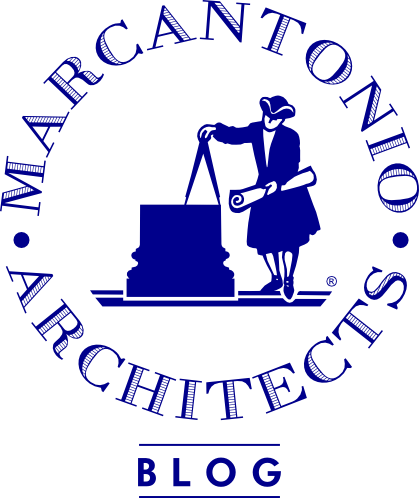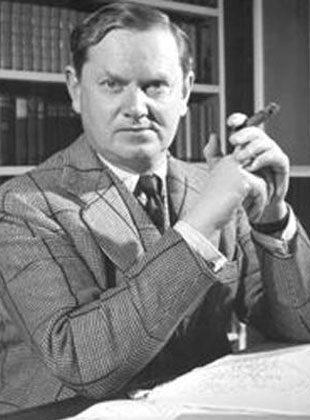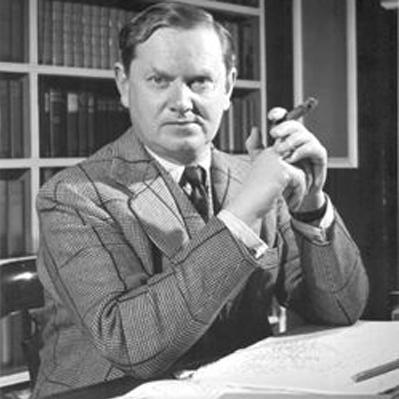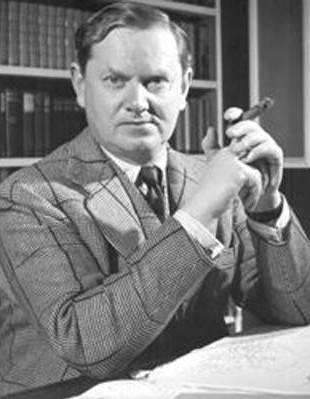Here’s a humorous passage from Evelyn Waugh’s first novel, Decline and Fall, published in 1928. The rich and glamorous socialite Margot Beste-Chetwynde has decided to demolish her centuries-old house, “King’s Thursday,” and commission a young Modernist to replace it with “Something clean and square.”
Professor Silenus – for that was the title by which this extraordinary young man chose to be called – was a ‘find’ of Mrs Beste-Chetwynde’s. He was not yet very famous anywhere, though all who met him carried away deep and diverse impressions of his genius. He had first attracted Mrs Beste-Chetwynde’s attention with the rejected design for a chewing-gum factory which had been produced in a progressive Hungarian quarterly. His only other completed work was the décor for a cinema-film of great length and complexity of plot – a complexity rendered the more inextricable by the producer’s austere elimination of all human character, a fact which had proved fatal to its commercial success. He was starving resignedly in a bed-sitting-room in Bloomsbury, despite the untiring efforts of his parents to find him – they were very rich in Hamburg – when he was offered the commission of rebuilding King’s Thursday. ‘Something clean and square’ – he pondered for three hungry days upon the aesthetic implications of these instructions and then began his designs.
‘The problem of architecture as I see it,’ he told a journalist who had come to report on the progress of his surprising creation of ferro-concrete and aluminium, ‘is the problem of all art – the elimination of the human element from the consideration of form. The only perfect building must be the factory, because that is built to house machines, not men. I do not think it is possible for domestic architecture to be beautiful, but I am doing my best. All ill comes from man,’ he said gloomily; ‘please tell your readers that. Man is never beautiful, he is never happy except when he becomes the channel for the distribution of mechanical forces.’
The journalist looked doubtful. ‘Now, Professor,’ he said, ‘tell me this. Is it a fact that you have refused to take any fee for the work you are doing, if you don’t mind my asking?’
‘It is not,’ said Professor Silenus.
‘Peer’s Sister-in-Law Mansion Builder on Future of Architecture,’ thought the journalist happily. ‘Will machines live in houses ? Amazing forecast of Professor-Architect.’
Professor Silenus watched the reporter disappear down the drive and then, taking a biscuit from his pocket began to munch.
‘I suppose there ought to be a staircase,’ he said gloomily. ‘Why can’t the creatures stay in one place ? Up and down, in and out, round and round ! Why can’t they sit still and work ? Do dynamos require staircases? Do monkeys require houses? What an immature, self-destructive, antiquated mischief is man! How obscure and gross his prancing and chattering on his little stage of evolution ! How loathsome and beyond words boring all the thoughts and self-approval of his biological byproduct! this half-formed, ill-conditioned body! This erratic, maladjusted mechanism of his soul: on one side the harmonious instincts and balanced responses of the animal, on the other the inflexible purpose of the engine, and between them man, equally alien from the being of Nature and the doing of the machine, the vile becoming!



